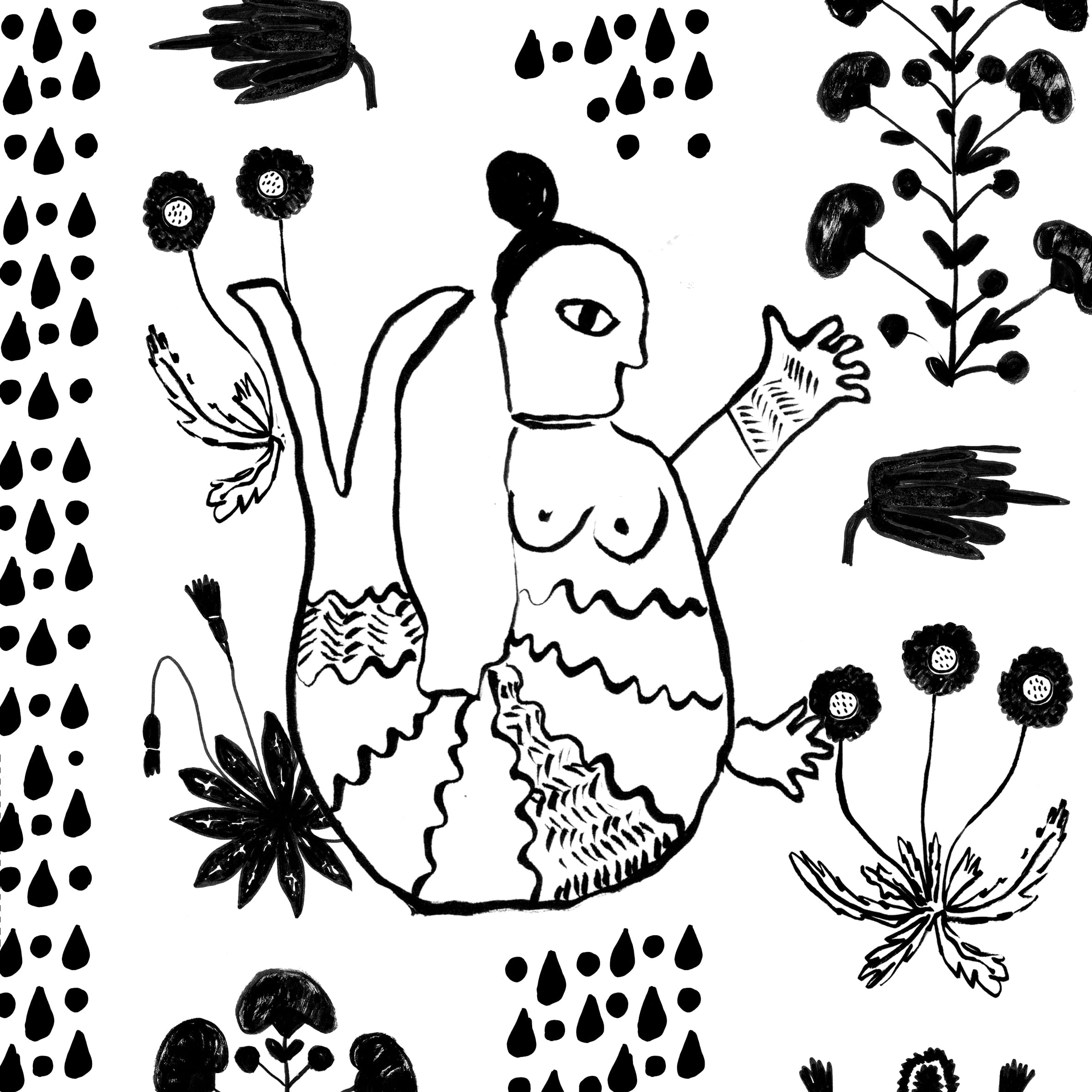Kimberly Ellen Hall
Faculty on the MFA in Illustration Practice, Maryland Institute College of Art

Courtesy of the artist
Teaching/Not Teaching: A Community-Oriented Practice in the Classroom
Abstract
In this paper I propose to investigate the value of breaking the traditional role of teacher and student into something more collaborative. Historically, there is the format that posits the teacher at the head of the class, to whom students look up to find a path to success, but my own teaching experience has shown me that the nature of the student/teacher relationship is inherently reciprocal, whether we acknowledge it or not.
Some questions I am interested in as I look at the student/teacher relationship are guided by thoughts about illustration practice overall, thinking about illustrating other’s writing or stories, considering what is objectivity, and whose truth. This stems from the confluence of the social justice movements with the pandemic in an academic setting as well as topics we already consider as illustrators of texts: How do we navigate the many voices? How do we faithfully represent the ideas of a text or author? And also considering what does it mean to be in a position of power? How do we not only distribute that power for the benefit of the current moment, but how can it change our students for the future? I would like to argue that the breakdown of the traditional role of the teacher in a position of power over the student must transform into a community-oriented practice for the education of our students to be successful.
To investigate this further I am exploring the work of cartoonist & educator Lynda Barry and choreographer & teacher Liz Lerman in tandem, both MacArthur Grant recipients, and both proponents of unique ways for students and teachers to interact in work and critique. I will offer a view into the exercises and question-led format of Barry’s 2014 book Syllabus that shows how professors might examine their own research questions in collaboration with their students. And I will supplement my presentation with insight from Lerman’s Critical Response Process: A Method for Getting Useful Feedback on Anything You Make, from Dance to Dessert. By bringing the ideas of these two texts together, with the underpinning of illustration pedagogy, I argue that we have the tools handy to move our teaching forward into a more equitable space for the future.
Bio
\
With an MA in Textile Futures from Central St. Martins in London, Kim currently teaches on the Illustration Practice MFA at Maryland Institute College of Art/MICA in Baltimore, after stints teaching at Parsons and FIT in New York. She has drawn, art directed, or designed for clients like The Denver Art Museum, The Village Voice, Chronicle Books, The Sunday Times (UK), Coach, Anthropologie, and her own artist-led textile studio, called Nottene, with partner Justin Hardison. The studio work centers on pattern and its use in objects and images in the home. She was a 2017 resident at RAIR Philly, a 2018 artist in residence at Johns Hopkins Extreme Materials Institute, and a 2020 fellow at Winterthur Museum. Her work has been recognized by NYCxDesign, The Society of Publication Designers and American Illustration.